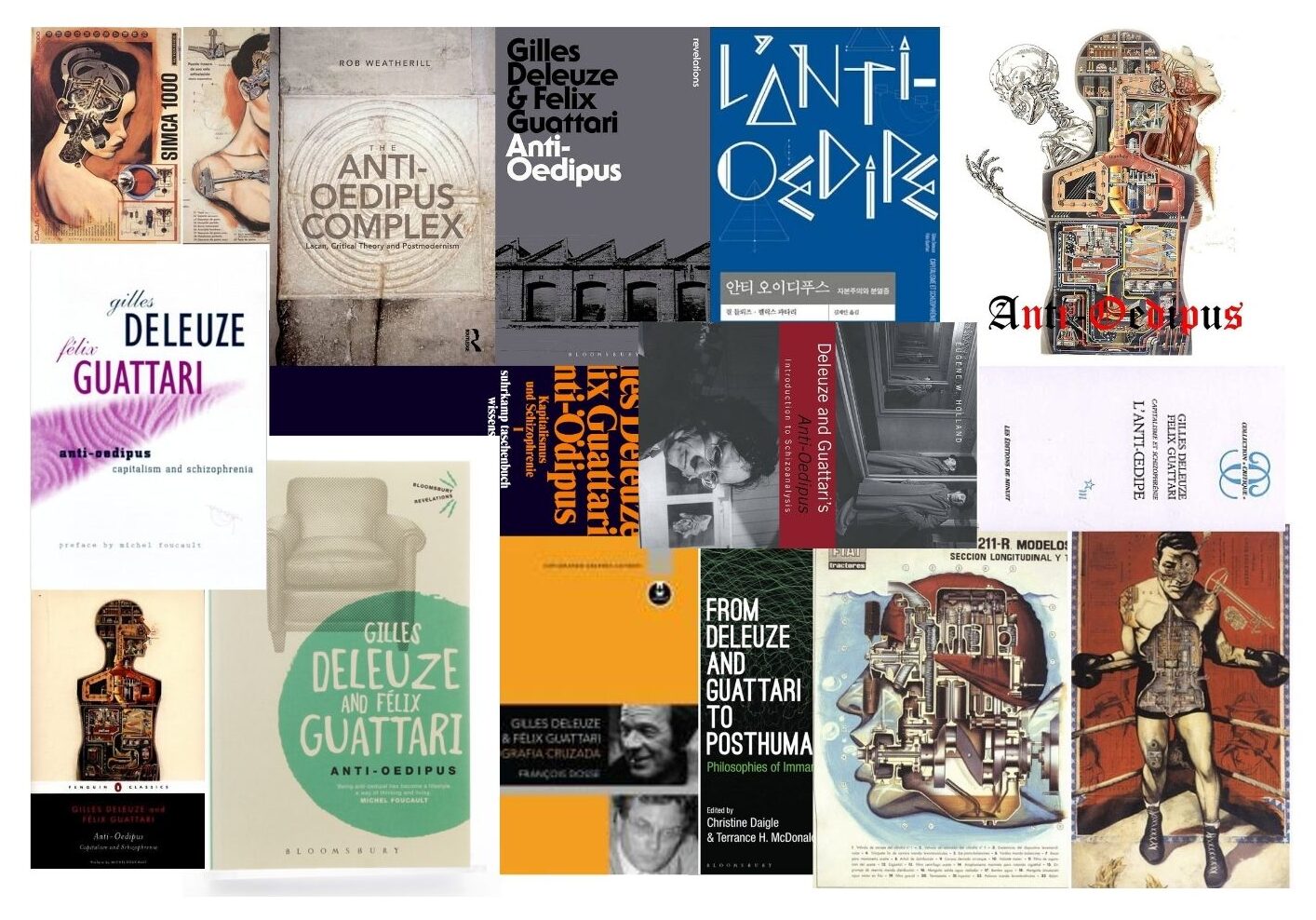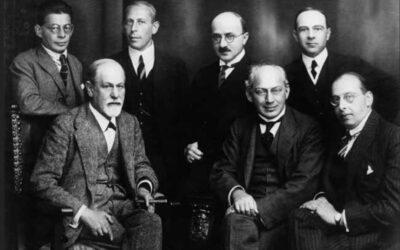
Psychotherapeutic Approaches Aligned with Anti-Oedipal Theory
While highly abstract, the concepts of desiring-production, schizoanalysis, and the challenges to subjective coding introduced in Anti-Oedipus have had a profound impact across various psychotherapeutic modalities. Several traditions resonate with the book’s radical rethinking of subjectivity, desire, and counternormative approaches to psychic life:
Existential Therapy
Existential therapy’s focus on subjective human existence and creating one’s essence through lived experience harmonizes with Anti-Oedipus’s process ontology of constant self-production and “becomings.” Existential therapy rejects rigid delineations of self, instead viewing the client as continually emergent and responsible for authoring their world.
This mirrors schizoanalysis’s attunement to the pre-subjective flows of desiring-production always exceeding and de-stratifying codified identities. Both frameworks privilege an open, indeterminate perspective on selfhood and meaning-making.
Person-In-Environment Approaches
The person-in-environment approach central to social work directly considers how external systems, environments, and power structures inculcate and condition the developmental self – a core concern of Anti-Oedipus.
Deleuze and Guattari’s critique of capitalism’s subjugation of desire into regulated production/consumption speaks to this approach’s analysis of socioeconomic forces shaping identity. Practitioners aim to schizoanalytically perceive and intervene in the rhizomatic networks and desiring flows impacting clients’ self-construction.
Internal Family Systems (IFS)
With its focus on relating to multiplicitous “parts” comprising individual phenomenological systems, IFS mirrors Anti-Oedipus’s machinic model of subjectivity as a dynamic interplay of partitive drives and desiring processes, not a unitary self.
The non-pathologizing stance toward these parts, instead welcoming their insights and roles in the client’s psyche, reflects schizoanalytic principles of remaining open to difference and avoiding overcodings. IFS facilitates self-leadership akin to navigating desiring flows.
Psychosynthesis
Psychosynthesis openly incorporates perspectives from diverse traditions in service of personal and transpersonal growth – an archetypal anti-Oedipal move against disciplinary stratification. Its philosophical grounding in synthesizing disassociated psychic elements resonates with schizoanalytic integration.
Moreover, psychosynthesis techniques like dis-identifying from conditioning and recognizing self as a pure conscious “I” parallel Anti-Oedipus’s quest to dismantle subjective coding and rediscover the conscious choices we make in spite of of immanent desiring flows.
While not derivative philosophies, these therapeutic modalities display profound resonances and overlaps with the revolutionary ideas seeded in Anti-Oedipus. Each develops practices and perspectives for engaging the heterogeneous, dynamic processes underlying selfhood and personal formation in ways that constructively de-strat and open new possibilities for therapeutic exploration and self-actualization.
Did you enjoy this article? Checkout the podcast here: https://gettherapybirmingham.podbean.com/
Bibliography:
Deleuze, G., & Guattari, F. (1983). Anti-Oedipus: Capitalism and Schizophrenia. University of Minnesota Press. This groundbreaking collaborative work by Deleuze and Guattari introduces the concept of “schizoanalysis” as an alternative to Freudian psychoanalysis, challenging traditional notions of subjectivity, desire, and the role of capitalism in shaping the human psyche.
Guattari, F. (1984). Molecular Revolution: Psychiatry and Politics. Penguin Books. Guattari’s influential work explores the intersection of psychiatry, politics, and social transformation, laying the foundations for the development of schizoanalysis and his collaborative project with Deleuze.
Guattari, F. (1995). Chaosmosis: An Ethico-Aesthetic Paradigm. Indiana University Press. In this later work, Guattari expands on the concepts introduced in Anti-Oedipus, delving deeper into the ethical and aesthetic dimensions of his radical approach to subjectivity and the production of desire.
Deleuze, G. (1994). Difference and Repetition. Columbia University Press. Deleuze’s seminal work on the philosophy of difference and repetition provides essential context for understanding the ontological underpinnings of the concepts developed in Anti-Oedipus.
Deleuze, G., & Guattari, F. (1987). A Thousand Plateaus: Capitalism and Schizophrenia. University of Minnesota Press. This follow-up to Anti-Oedipus further explores the authors’ conception of “rhizomes,” “assemblages,” and the deconstruction of traditional notions of subjectivity and social organization.
May, T. (2005). Gilles Deleuze: An Introduction. Cambridge University Press. This comprehensive introduction to Deleuze’s philosophical thought offers valuable insights into the broader context and influence of his collaboration with Guattari.
Buchanan, I. (1997). The Problem of the Body in Deleuze and Guattari, Or, What Can a Body Do?. Body & Society, 3(3), 73-91. This scholarly article delves into Deleuze and Guattari’s conceptualization of the body and its relationship to desire, subjectivity, and the political implications of their theory.
Genosko, G. (2002). Guattari’s Schizoanalytic Semiotics: Towards a Post-Signifying Regime of Signs. Social Semiotics, 12(1), 7-24. This in-depth analysis of Guattari’s schizoanalytic approach to semiotics offers a deeper understanding of the theoretical foundations of Anti-Oedipus.
Stivale, C. J. (2005). Gilles Deleuze’s Abecedary. Discourse, 20(3), 113-141. This article explores Deleuze’s own reflections on his philosophical concepts and their application, providing valuable context for interpreting the ideas presented in Anti-Oedipus.
Goodchild, P. (1996). Deleuze and Guattari: An Introduction to the Politics of Desire. SAGE Publications. This introductory text examines the political dimensions of Deleuze and Guattari’s collaborative work, including the implications of their critique of capitalism and their vision for social transformation.
Further Reading:
Lacan, J. (1977). Écrits: A Selection. Tavistock Publications. Lacan’s influential work on psychoanalysis and the formation of the subject provides an important counterpoint to the Deleuzian and Guattarian approach developed in Anti-Oedipus.
Freud, S. (2010). The Interpretation of Dreams. Basic Books. Freud’s seminal work on the unconscious and the role of dreams in psychic life forms the foundation upon which Deleuze and Guattari build their critique of traditional psychoanalysis.
Foucault, M. (1978). The History of Sexuality, Vol. 1: An Introduction. Pantheon Books. Foucault’s analysis of power, sexuality, and the construction of the subject offers valuable context for understanding the political and social implications of Anti-Oedipus.
Žižek, S. (1989). The Sublime Object of Ideology. Verso. Žižek’s engagement with Lacanian psychoanalysis and its intersection with political theory provides a useful counterpoint to the Deleuzian and Guattarian perspective.
Lyotard, J. F. (1984). The Postmodern Condition: A Report on Knowledge. University of Minnesota Press. Lyotard’s influential work on the postmodern condition and the critique of grand narratives illuminates the broader philosophical context in which Anti-Oedipus was situated.

























0 Comments